Fleurs du Mal Magazine



I was sad
I was sad
Having signed up in a rebel band,
Having signed up to rid the land
Of a plague it had.
For I knew
That I would suffer, I would be lost,
Be bitter and foolish and tempest tost
And a failure too.
I was sad;
Though far in the future our light would shine
For the present the dark was ours, was mine,
I couldn’t be glad.
Lesbia Harford
(1891-1927)
I was sad
• fleursdumal.nl magazine
More in: Archive G-H, Archive G-H, Feminism, Harford, Lesbia, Workers of the World

I Shall not Care
When I am dead and over me bright April
Shakes out her rain-drenched hair,
Tho’ you should lean above me broken-hearted,
I shall not care.
I shall have peace, as leafy trees are peaceful
When rain bends down the bough,
And I shall be more silent and cold-hearted
Than you are now.
Sara Teasdale
(1884-1933)
I Shall not Care
• fleursdumal.nl magazine
More in: #Editors Choice Archiv, Archive S-T, Archive S-T, Teasdale, Sara
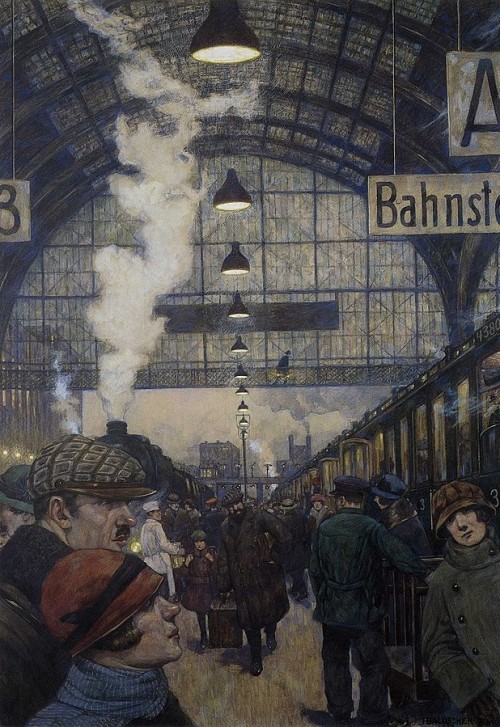
Bahnhofshalle
Bij het gelijknamige schilderij uit 1929 van Hans Baluschek
Ze meende dat ze bij elkaar hoorden maar in
het voorbijgaan vangt ze op hoe zij nog aan hem
vraagt van waar hij komt. “Een ’oekske”, zegt hij.
“Een donker ’oekske.” Zwijgend vreest hij dan
weer voor eeuwig de pantomime van krijgers
die alleen in tientallen rekenen, tellend doden.
Bert Bevers
Bahnhofshalle
•fleursdumal.nl magazine
More in: Archive A-B, Archive A-B, Bevers, Bert, FDM in Berlin
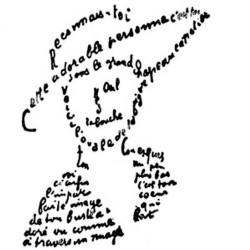
Aubade chantée à Laetare l’an passé
C’est le printemps viens-t’en Pâquette
Te promener au bois joli
Les poules dans la cour caquètent
L’aube au ciel fait de roses plis
L’amour chemine à ta conquête
Mars et Vénus sont revenus
Ils s’embrassent à bouches folles
Devant des sites ingénus
Où sous les roses qui feuillolent
De beaux dieux roses dansent nus
Viens ma tendresse est la régente
De la floraison qui paraît
La nature est belle et touchante
Pan sifflote dans la forêt
Les grenouilles humides chantent
Guillaume Apollinaire
(1880 – 1918)
Poéme: Aubade chantée à Laetare l’an passé
Recueil: Alcools (1913)
• fleursdumal.nl magazine
More in: *Concrete + Visual Poetry A-E, Apollinaire, Guillaume, Archive A-B, Archive A-B, Dada, DADA, Dadaïsme, Guillaume Apollinaire
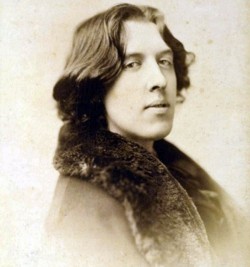
Symphony In Yellow
An omnibus across the bridge
Crawls like a yellow butterfly,
And, here and there a passer-by
Shows like a little restless midge.
Big barges full of yellow hay
Are moored against the shadowy wharf,
And, like a yellow silken scarf,
The thick fog hangs along the quay.
The yellow leaves begin to fade
And flutter from the temple elms,
And at my feet the pale green Thames
Lies like a rod of rippled jade.
Oscar Wilde
(1854 – 1900)
Symphony In Yellow
• fleursdumal.nl magazine
More in: Archive W-X, Archive W-X, Wilde, Oscar, Wilde, Oscar
Part memoir, part manifesto, the inspiring story of a Louisiana librarian advocating for inclusivity on the front lines of our vicious culture wars.
 One of the things small town librarian Amanda Jones values most about books is how they can affirm a young person’s sense of self. So in 2022, when she caught wind of a local public hearing that would discuss “book content,” she knew what was at stake.
One of the things small town librarian Amanda Jones values most about books is how they can affirm a young person’s sense of self. So in 2022, when she caught wind of a local public hearing that would discuss “book content,” she knew what was at stake.
Schools and libraries nationwide have been bombarded by demands for books with LGTBQ+ references, discussions of racism, and more to be purged from the shelves. Amanda would be damned if her community were to ban stories representing minority groups. She spoke out that night at the meeting. Days later, she woke up to a nightmare that is still ongoing.
Amanda Jones has been called a groomer, a pedo, and a porn-pusher; she has faced death threats and attacks from strangers and friends alike. Her decision to support a collection of books with diverse perspectives made her a target for extremists using book banning campaigns-funded by dark money organizations and advanced by hard right politicians-in a crusade to make America more white, straight, and “Christian.” But Amanda Jones wouldn’t give up without a fight: she sued her harassers for defamation and urged others to join her in the resistance.
Mapping the book banning crisis occurring all across the nation, That Librarian draws the battle lines in the war against equity and inclusion, calling book lovers everywhere to rise in defense of our readers.
Amanda Jones has been an educator for 23 years, at the same middle school she attended as a child. She has served as President of the Louisiana Association of School Librarians and won numerous awards for her work in school libraries, including School Library Journal Librarian of the Year. A sought-after keynote speaker, Amanda is a frequent volunteer for state and national library associations, as well as a co-founder of the Livingston Parish Library Alliance and founding member of Louisiana Citizens Against Censorship. She lives in Livingston Parish, Louisiana.
That Librarian:
The Fight Against Book Banning in America
by Amanda Jones
ISBN: 9781639733538
ISBN-10: 1639733531
Publisher: Bloomsbury Publishing
Publication Date: August 27th, 2024
Pages: 288
Language: English
$29.99
• fleursdumal.nl magazine
More in: - Audiobooks, - Book Lovers, - Book News, - Book Stories, - Bookstores, - Guerilla Libraries, Archive I-J
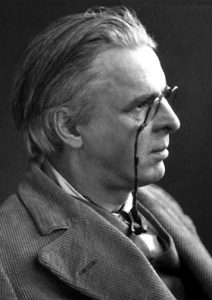
When you are old and grey
When you are old and grey and full of sleep,
And nodding by the fire, take down this book,
And slowly read, and dream of the soft look
Your eyes had once, and of their shadows deep;
How many loved your moments of glad grace,
And loved your beauty with love false or true,
But one man loved the pilgrim soul in you,
And loved the sorrows of your changing face;
And bending down beside the glowing bars,
Murmur, a little sadly, how Love fled
And paced upon the mountains overhead
And hid his face amid a crowd of stars.
W.B. Yeats
(1865—1939)
When you are old and grey
• fleursdumal.nl magazine
More in: Archive Y-Z, Archive Y-Z, Yeats, William Butler
The story of art as it’s never been told before, from the Renaissance to the present day, with more than 300 works of art.
How many women artists do you know? Who makes art history? Did women even work as artists before the twentieth century? And what is the Baroque anyway?
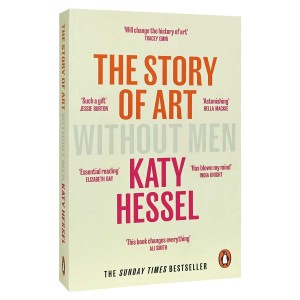 Guided by Katy Hessel, art historian and founder of @thegreatwomenartists, discover the glittering paintings by Sofonisba Anguissola of the Renaissance, the radical work of Harriet Powers in the nineteenth-century United States and the artist who really invented the “readymade.”
Guided by Katy Hessel, art historian and founder of @thegreatwomenartists, discover the glittering paintings by Sofonisba Anguissola of the Renaissance, the radical work of Harriet Powers in the nineteenth-century United States and the artist who really invented the “readymade.”
Explore the Dutch Golden Age, the astonishing work of postwar artists in Latin America, and the women defining art in the 2020s.
Have your sense of art history overturned and your eyes opened to many artforms often ignored or dismissed. From the Cornish coast to Manhattan, Nigeria to Japan, this is the history of art as it’s never been told before.
Katy Hessel is an art historian, broadcaster and curator dedicated to celebrating women artists from all over the world. She runs @thegreatwomenartists Instagram and The Great Women Artists Podcast, where she has interviewed the likes of Tracey Emin, Marina Abramovic and authors Ali Smith and Deborah Levy. Katy has lectured at Tate and National Gallery, presented films for the BBC, and is a Visiting Fellow at Cambridge University. She is a columnist for the Guardian, and the author of The Story of Art without Men – a Sunday Times Bestseller and winner of Waterstones Book of the Year 2022.
Katy Hessel:
The Story of Art without Men
Publisher: W. W. Norton & Company
May 2, 2023
Language: English
Hardcover: 512 pages
ISBN-10: 0393881865
ISBN-13: 978-0393881868
26,28 euro – hardcover
• fleursdumal.nl magazine
More in: #Non-fiction: Archive, - Book News, - Bookstores, Archive G-H, Art & Literature News, FDM Art Gallery, Feminism, The Ideal Woman
In this unconventional and witty history, award-winning writer and broadcaster Alice Loxton delves into Britain’s past, exploring the country through eighteen notable figures at that most formative age – eighteen.
 From a young Elizabeth Tudor facing deadly intrigue at court, to Empress Matilda already changing the fate of nations, Eighteen invites readers to join an eclectic cast of young Britons across the nation and throughout its history.
From a young Elizabeth Tudor facing deadly intrigue at court, to Empress Matilda already changing the fate of nations, Eighteen invites readers to join an eclectic cast of young Britons across the nation and throughout its history.
Filled with fascinating stories of royalty, explorers, writers and entertainers, Eighteen asks what lessons we can learn for modern Britain.
Alice Loxton is one of Britain’s most exciting young historians. She has been a pioneer in bringing history to new audiences through social media, and has a total following of over 2 million across Instagram, TikTok and Twitter. She is an experienced writer and presenter, regularly presenting documentaries on History Hit, Channel 4 and the BBC. She is the author of the acclaimed book UPROAR: Scandal, Satire and Printmakers in Georgian London, nominated for Blackwell’s Book of the Year.
Alice Loxton:
Eighteen. A History of Britain in 18 Young Lives
Publisher: Macmillan; Main Market edition
15 Aug. 2024
Language: English
Hardcover: 336 pages
ISBN-10: 1035031280
ISBN-13: 978-1035031283
Reading age: 18 years and up
Dimensions: 15.56 x 3.05 x 23.5 cm
Price: 19,99 euro
• fleursdumal.nl magazine
More in: #Biography Archives, - Book News, - Bookstores, Archive K-L, FDM in London, History of Britain, Tales for Fellow Citizens

Ballade De Marguerite
(Normande)
I am weary of lying within the chase
When the knights are meeting in market-place.
Nay, go not thou to the red-roofed town
Lest the hoofs of the war-horse tread thee down.
But I would not go where the Squires ride,
I would only walk by my Lady’s side.
Alack! and alack! thou art overbold,
A Forester’s son may not eat off gold.
Will she love me the less that my Father is seen
Each Martinmas day in a doublet green?
Perchance she is sewing at tapestrie,
Spindle and loom are not meet for thee.
Ah, if she is working the arras bright
I might ravel the threads by the fire-light.
Perchance she is hunting of the deer,
How could you follow o’er hill and mere?
Ah, if she is riding with the court,
I might run beside her and wind the morte.
Perchance she is kneeling in St. Denys,
(On her soul may our Lady have gramercy!)
Ah, if she is praying in lone chapelle,
I might swing the censer and ring the bell.
Come in, my son, for you look sae pale,
The father shall fill thee a stoup of ale.
But who are these knights in bright array?
Is it a pageant the rich folks play?
‘T is the King of England from over sea,
Who has come unto visit our fair countrie.
But why does the curfew toll sae low?
And why do the mourners walk a-row?
O ‘t is Hugh of Amiens my sister’s son
Who is lying stark, for his day is done.
Nay, nay, for I see white lilies clear,
It is no strong man who lies on the bier.
O ‘t is old Dame Jeannette that kept the hall,
I knew she would die at the autumn fall.
Dame Jeannette had not that gold-brown hair,
Old Jeannette was not a maiden fair.
O ‘t is none of our kith and none of our kin,
(Her soul may our Lady assoil from sin!)
But I hear the boy’s voice chaunting sweet,
‘Elle est morte, la Marguerite.’
Come in, my son, and lie on the bed,
And let the dead folk bury their dead.
O mother, you know I loved her true:
O mother, hath one grave room for two?
Oscar Wilde
(1854 – 1900)
Ballade De Marguerite
(Normande)
• fleursdumal.nl magazine
More in: Archive W-X, Archive W-X, Wilde, Oscar, Wilde, Oscar
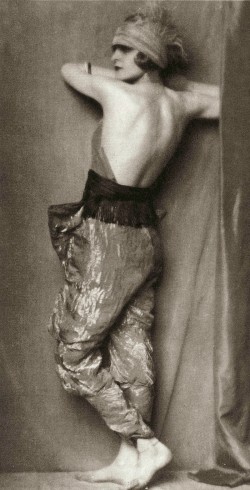
Kokain
Wände
Tisch
Schatten und Katzen
Grüne Augen
Viele Augen
Millionenfache Augen
Das Weib
Nervöses zerflatterndes Begehren
Aufflackerndes Leben
Schwälende Lampe
Tanzender Schatten
Kleiner Schatten
Großer Schatten
Der Schatten
Oh – der Sprung über den Schatten
Er quält dieser Schatten
Er martert dieser Schatten
Er frißt mich dieser Schatten
Was will dieser Schatten
Kokain
Aufschrei
Tiere
Blut
Alkohol
Schmerzen
Viele Schmerzen
Und die Augen
Die Tiere
Die Mäuse
Das Licht
Dieser Schatten
Dieser schrecklich große schwarze Schatten.
Anita Berber
(1899-1928)
Kokain
Anita Berber (1899 – 1928) was a German dancer, actress, and poet. She lived during the time of the Weimar Republic in Berlin.
• fleursdumal.nl magazine
More in: #Editors Choice Archiv, Anita Berber, Anita Berber, Archive A-B, Archive A-B, Berber, Anita, DANCE & PERFORMANCE, FDM in Berlin, Opium-Eaters
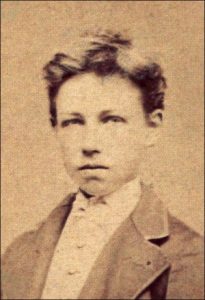
Bannières de mai
Aux branches claires des tilleuls
Meurt un maladif hallali.
Mais des chansons spirituelles
Voltigent parmi les groseilles.
Que notre sang rie en nos veines,
Voici s’enchevêtrer les vignes.
Le ciel est joli comme un ange.
L’azur et l’onde communient.
Je sors. Si un rayon me blesse
Je succomberai sur la mousse.
Qu’on patiente et qu’on s’ennuie
C’est trop simple. Fi de mes peines.
je veux que l’été dramatique
Me lie à son char de fortunes
Que par toi beaucoup, ô Nature,
– Ah moins seul et moins nul ! – je meure.
Au lieu que les Bergers, c’est drôle,
Meurent à peu près par le monde.
Je veux bien que les saisons m’usent.
A toi, Nature, je me rends ;
Et ma faim et toute ma soif.
Et, s’il te plaît, nourris, abreuve.
Rien de rien ne m’illusionne ;
C’est rire aux parents, qu’au soleil,
Mais moi je ne veux rire à rien ;
Et libre soit cette infortune.
Arthur Rimbaud
(1854 – 1891)
Bannières de mai
Derniers vers
• fleursdumal.nl magazine
More in: #Editors Choice Archiv, Archive Q-R, Archive Q-R, Arthur Rimbaud, Rimbaud, Arthur, Rimbaud, Arthur
Thank you for reading Fleurs du Mal - magazine for art & literature